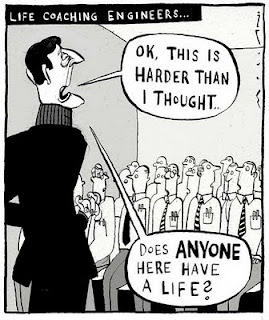Secularism in India
(Please note this article/thesis’ sanity remains constrained only in India and applicable only to Indians.)
In India, an Indian is either a Hindu, or a Muslim, or a Christian, or a Jain or a Buddhist….. or a Secularist. And India is a Secular country. My title, ain’t so thought provoking. It’s simple, you cannot be or at least not claim to be, a Hindu/Muslim (etc.) and secularist at the same time.
The word secular was interpolated in our constitution by an amendment in 1976. I remember saying this to one of my secular friend who chided me for using jargons like amendment and interpolation.
To answer him I have to say that these are matchless words which best describe the situation. Amendment is a change made to the constitution by a parliamentary bill/order. Interpolation is an addition/append made to the constitutional literacy. It means the word secular wasn’t mentioned in the constitution by the constitution framers, dated back to late 40’s. My point of argument is that why did the constitution framers refrained from inserting the word ‘secular’ in our constitution? If we rewind ourselves back to independence and partition time, the Hindu-Muslim controversies were at their zenith. It was an ideal time where religious politics were played, yet India wasn’t ‘secular’ at that time, when it needed to be (?).
India is perhaps the country which coiled the term ‘pseudo-secularist’ with description to the farcical execution of secularist policies in our nation. This discussion, I hope, will be clear once you read through the article.
If you are new to these terms the two real life examples (data not completely accurate) will help you resolve the differences.
I am privileged to share the same neighborhood with a local MLA. I see his thick-moustached face with saffron attire and a big red tikka on his forehead with a saffron flag across his arms in front on a Ram Mandir during Diwali time. I see his thick bearded look with a taqiyah on his head and palms crossed with a Mosque in his background during Ramzan Eid time. But the most important fact to be noticed is the position of these posters. I always see his Hindu look in Hindu dominated areas across my locality and his Muslim look in Muslim dominated areas.
At the same time I would like to mention a similar example of a local journalist in Vashi. During Diwali or Eid time, I see his posters wishing everyone with the occasion. Similar to the MLA he has the respective background gracing the occasion. The only differences are that his photo is the same, he doesn’t change his attire according to the occasion and he positions his banners in all places, irrespective of the majority population of the people. If u ask me, the journalist is an excellent personified example of Secularism and the MLA an equally splendid example of pseudo-secularism.
My point of argument is directed to the so called secular parties of India.
Secular, a word made famous by the Indian National Congress, has a very long history and is of deep importance in our country. Take for example, Mr. Rahul Gandhi, the future of Indian politics. I remember listening to his speech in Gujarat. He was wooing voters (esp. non-Hindu) to vote for his party not because it had done something for the development of the state but to vote against the BJP, their rivals, who were blamed for the Gujarat communal Riots. Wasn’t it the same Rahul Gandhi who said that religion should not and development should be only measuring factor in politics. What should we call this religious gimmickry or hypocrisy? You name it I will take it.
Another example is of M.J.Akbar, a famous writer who sometimes writes editorials for The Times. He claims himself to be a secularist. I have read or tried to read all of his articles to understand the secularist point of view, but failed. All his articles are based upon anti-politics in Gujarat or how Muslims in India are suffering etc. I find his articles extremely ironical. If he was a secularist then how can he demarcate religious minorities? Today the minorities are given separate laws, special reservations and privileges. In spite of the grants, why does Mr. Akbar have to write such articles, which can be said as minority praising and majority bashing? If people from other religions have also being affected by the riots in ’02 then how can Mr. Akbar categorically claim that Muslims (in general, people of a religion) suffered. If Narendra Modi is a Hindu-fundamentalist, is MJ Akbar trying to say, that Muslims should become hardliners to counter him (to generalize any non-secularist party in India)? This according to be is blatant disobeying of human nature.
What I mean to conclude, by giving these examples, is that secularist approach in India is divide and rule, similar to the British who ruled India for a quarter of a millennium. I feel rejected to see huge youngsters around me call themselves Secular without knowing the factual actuality of it. What I mean to say is that approach of secularism should be implemented by all Indians in their day to day life, may it be educational systems or recruitments. But when Indian politics is concerned secularism gets converted to pseudo-secularism.
Also to say that the Constitution of India should be undoubtedly the most religiously followed literature in Administration only, and not by citizens. It is not the Bhagwat Geeta or the Quran to be religiously followed and taken as a motivation to lead life. I do not mean to say act unconstitutionally but God-following it without understanding will have adverse effects.
An apt conclusion: Political parties in India should not be based on ideologies like secularism simply because it divides the nation further. Development should be the sole criterion on which one should vote for a party.

Comments
Hats off Ashutosh...
:P
good work...